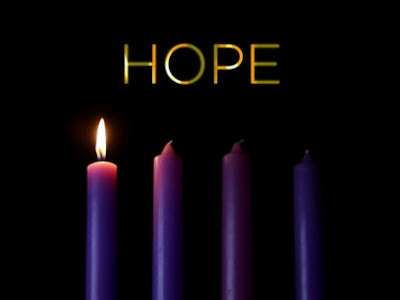On this first weekday of Advent, we honor the first called Apostle of Jesus. The Byzantine Church honors the Apostle Saint Andrew with the title: Protokletos, which means, “the first called” because he was the first of the Apostles to be called and to follow Jesus.
Though he was Jewish, his name Andrew, comes not from a Hebrew word, but a Greek word: andreios, meaning “brave” or the virtue of a warrior. The Apostle Andrew like a Warrior bravely followed Christ, bravely spread Christ’s Gospel, and bravely witnessed to Christ in martyrdom.
Tradition says that he preached the gospel in Greece and in the year 60 was crucified on an X shaped cross. He hung on the cross for two days before he died, and it is said that he continued to preach the Gospel while hanging from the cross.
What lessons particularly for Advent, can we learn from this courageous martyred apostle? Courage. Courage is not typically associated with Advent. We usually think of Advent hope, Advent peace, Advent joy, and Advent Love. But Courage is needed if we hope to grow in these virtues—to do what is needed in order to grow in virtue. As C. S. Lewis wisely noted, “Courage is not simply one of the virtues, but the form of every virtue at the testing point.”
Courage is needed to turn away from worldly distraction in order to practice the prayer, penance, poverty, quiet, charity, contemplation, and meditation characteristic of the season of Advent. Without those things we will never grow in the supernatural virtues of hope, peace, joy, and love. It takes courage, doesn’t it, to say no to our addictions, our attachments, and our habits. It takes courage to not return to those familiar things, even though they aren’t good for us.
St. Andrew required Courage to turn away from good things, in order to turn toward something better. He required Courage to turn away from fishing, from his profession, which provided him and his family certain worldly security, in order to follow Christ in his special vocation as apostle.
And he was the first. The protokletos. It takes a lot of Courage in order to be the first to do something. The second person has the benefit of the example and witness of the first. But the first requires a tremendous leap of faith.
There are likely even good things in our life, that we need the courage to turn away from, in order to follow Jesus more deeply. It’s not just addictions that we need the courage to break. But fasting from luxurious foods and restaurants perhaps, some of our creature comforts that aren’t necessarily bad. Perhaps, just ordering our days in a more structured manner, so we can be more attentive to prayer and study and good works. Again, it takes an Andrew amount of Courage to begin some new charitable endeavor that no one else is doing.
This brave martyr embraced Christ, embraced living for Him over everything else, and lived to bring others to Jesus, witnessing to Christ unto death. We do well to consider, how our lives should change in order to follow Andrew’s example this Advent, of going out to meet the Lord and embracing him when he arrives for the glory of God and salvation of souls.
- - - - - - -
We raise up our prayers of petitions, as we await with longing the Advent of Christ the Lord.
That through the courageous witness of the Christian Church, Our Lord will bring hope to the hopeless and joy to the joyless.
That world leaders may look upon the Son of God, believe in him, and seek the peace and justice that only he can bring.
That Christ may heal every disease, drive out hunger, ward off every affliction, and bring peace to the suffering.
For the deceased of our parish, family and friends, and for all the poor souls in purgatory, and for X. for whom this Mass is offered.
Keep us alert, we pray, O Lord our God, as we await the advent of Christ your son, so that, when he comes and knocks, he may find us watchful in prayer and exultant in his praise. Who lives and reigns with you in the unity of the Holy Spirit, one God, for ever and ever.















